The history of the library in Zwoleń is closely connected to the history of our town and is a part of its identity.
As a result of the turbulent history of our town only few of the resources concerning its past remained. Frequent wars, marches of troops, plunders and fires contributed to the destruction of most of the records describing our past.
The first mention of the library comes from 1976. In the historical monograph - “Zwoleń, dzieje miasta i ziemi” (“Zwoleń, the history of the town and its territory”), we find: “Relatively large number of clergymen living in Zwoleń (a parson, 2 curates, a provost) and other people connected to the cultural activity (school rector) made the jurisdiction of presbytery the major cultural center in town. Moreover, in 1736, the parish possessed considerably big library which contained 33 books in such
languages as: Latin, Polish, French and German”. So if needed, information could be acquired.
There is also some information about the existence of the library next to the parish from 1743. Its parson at that time was Franciszek Potkański. The church had at its disposal a reference library, which, except for missals and liturgical books, contained 75 volumes on the subjects of religion, law and general knowledge (“Zrektorami, plebanami i proboszczami zwolenskimi przez wieki” (“With rectors, pastors and parsons of Zwoleń through centuries”) - Zbigniew Lesisz).
The next mention of the library comes from 1843. On the page 129 in the above-mentioned monograph, we find: “As teaching resources, the library used wooden board for writing, alphabet boards, and after 1843 boards with Russian alphabet. The books in the library should be as well recognized here as a teaching resource”.
As we read on in the monograph, on the pages 172-173, we find: “The encouragement to read was, inter alia, used to awaken the intellectual life among the people of Zwoleń”. A correspondent of “Gazeta Radomska” noticed an improvement in this matter and the evidence of that could have been the existence of several subscribers of “Zorza” and “Gazeta Świąteczna”. The fact which confirms that the propagation of reading was successful can be that our collection (unknown date of its creation) was in 1900 used by 716 people, which placed Zwoleń on the second place in the region, just after Kozienice (1717) but before such towns as Radom (147), Skarżysko. At that time, the book collection in Zwoleń consisted of 144 volumes in Polish and 221 volumes in Russian.
An important role in the propagation of reading of Polish literature in Zwoleń and its neighborhood was played by Dr. Jan Pawłowski and his wife Maria (family name:
Czapliński). The public library was located in their house and it was run by Maria very successfully.
In 1907, thanks to the help of The Educational Society and surrounding manor houses, a Folk House, where later on the library and reading rooms were located, was built in Zwoleń. When the authorities in December 1907 prohibited further activities of the Educational Society, anxiety about the future of the library and the Folk House appeared. In the article printed by Głos Zwoleński (the Voice of Zwoleń) number 8 “Zwoleń we wspomnieniach Marii Pawlowskiej” (“Zwoleń in the memories of Maria Pawłowska”) - we find:
“The local state school with Polish as a language of instruction did not need any help, whereas opening a reading room was an issue of great importance. Surrounding manor houses came to us with help giving us many valuable books, among which the majority were those by Kraszewski. This collection still needed to be extended and the damaged books bound.
Initially, we ran the library on our own in our apartment. I gave out a book twice a week: on Sunday after a morning mass until 2:00 p.m. and on Thursday from 11:00
a.m. until 2:00 p.m. The number of readers was growing week after week and we were experiencing a constant shortage of books”.
The President of The Education Society Mr. Osuchowski donated to our library a huge gift consisting of many volumes, including a full 4-volume collection of work of Jan Kochanowski, which was then too demanding a reading for our readers. Those volumes lay down on the shelf of our library but purchasing new books was still
necessary.
From the source materials, there was supposedly a peasant from the neighborhood of Zwoleń, Szaruga, a self-taught book binder, who sent us a piece of his work. After diligently reading every book, he sent it back to us already bound.
The library, as well as many other facilities, was destroyed after the outbreak of the World War I. The rebuilding of the library was probably started in 1925 (no data), that is when Zwoleń regained a town charter and was known for well-developed craftsmanship, trade and education.
In the years between 1937 - 1939 (passed down by word of mouth) the public library was situated in one of the rooms in the Primary School Number 1 in Zwoleń. The people running the library were (probably) the teachers: Adela Pawłowska and Teofilia Markiewicz.
Most of our town’s estate as well as pieces of the book collection of our library were lost during the World War II. Fortunately, some parts of the collection, owing to the dedication of the inhabitants, remained.
Since the establishment of Masovian Voivodeship in 1999, the conceptual leader has been the Provincial Public Library in Warsaw.
Since the January 2001, after ten-year break, we have been functioning as the County Public Library.
Shortly analyzing the history of the Library of Zwoleń, it is difficult not to notice the bond between the readers and the library and how important the library is for the town. Let the paraphrased words of the renowned French philosopher from the XVI century René Descartes “I think, therefore I read” become a message, especially for the young; so the computer will not win over the book, and an encouragement to visit our library.
On my and the library staff’s behalf, I wish us all that the offer of our library became greater and greater and met all the needs of our readers.
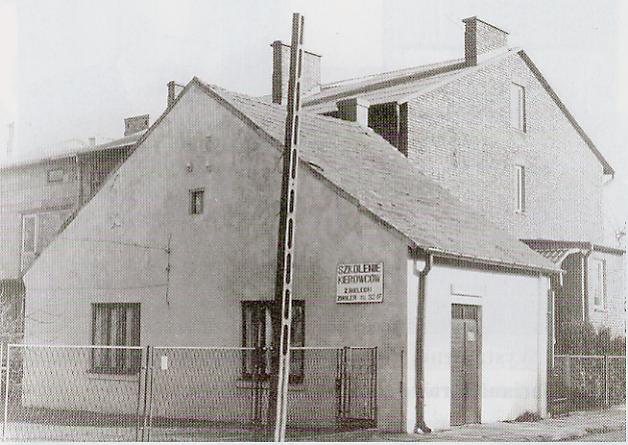
on Różana Street
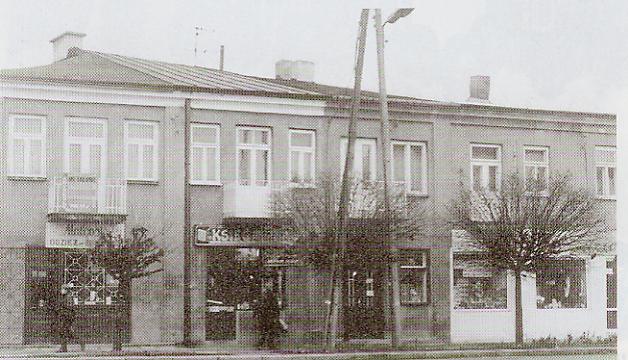
on the Wojska Polskiego Street
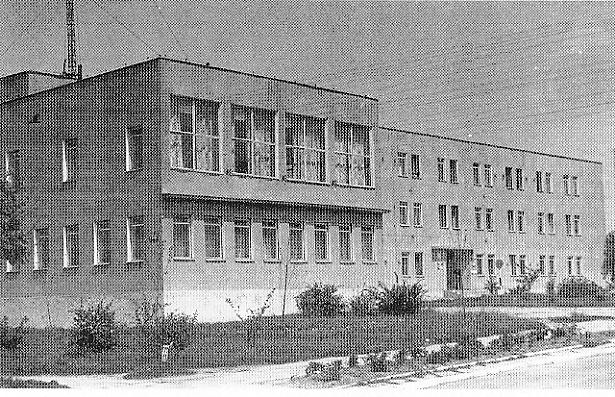
The Bulding of the County National Council)on the W. Jagiełły Street.
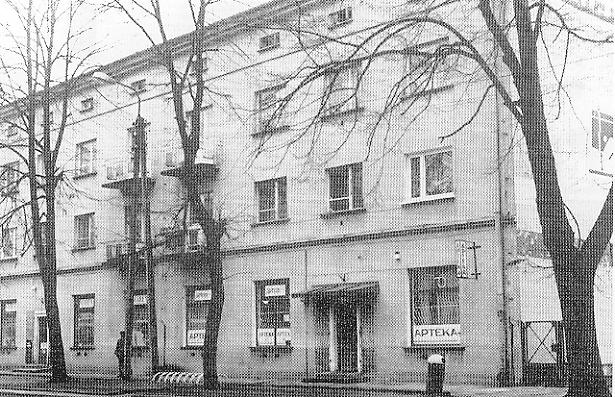
The entrance to the former library on the W. Jagiełły Street.
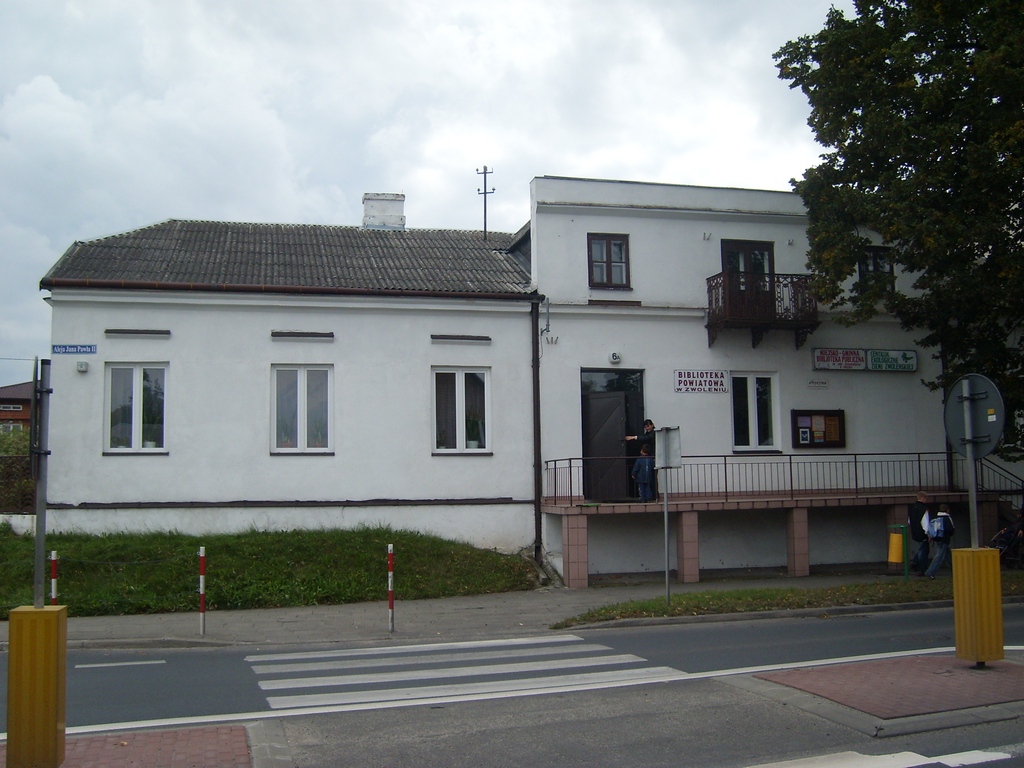
on the Aleja Jana Pawła II 6a Street


